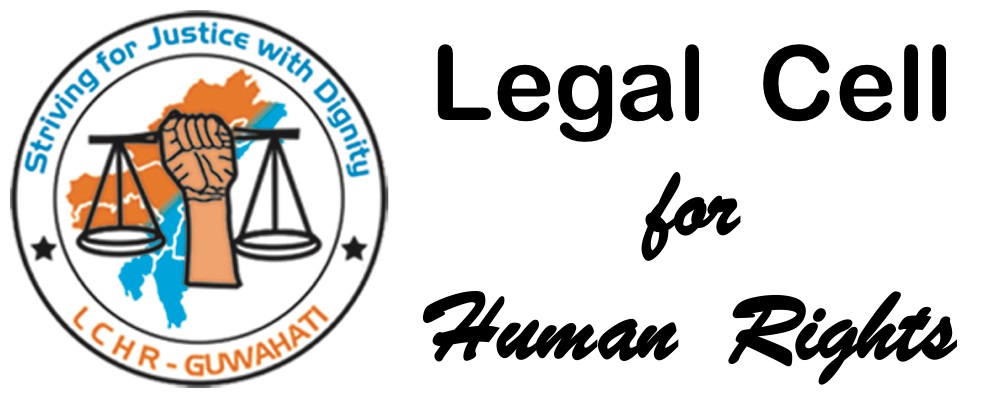Report on Training on Laws related to women and children
1st day (30.08.2019)
TIME-9.00AM TO 6.30PM
Two days training programme was organised by LCHR, which was held on 30/08/19 to 31/08/19 at St. Xavier Mancotta, Dibrugarh on the topic ‘Training on Laws related to women and children’. The total number of 29 participants’ attended including LCHR staff Mousumi Kalita & Chasom Hakhun.
The first session was presented by Mr. Nitumoni Das, Dy. Superintendent of police Dibrugarh on ‘Cyber crime.’ firstly he interacted with the participants about their day to day occurrence due to cyber crime in their surroundings.
He explained the cause and consequences of Cybercrime are due to any criminal activity that involves a computer, networked device or a network. While most cybercrimes are carried out in order to generate profit for the cybercriminals, some cybercrimes are carried out against computers or devices directly to damage or disable them.
Lastly he mentioned them how to fill an FIR regarding any issue which related to cyber crime.
2nd session was started from 11.00AM to 1.00PM
Resource person- Adv. Nazarana Ahmed
Session was taken on Land Laws.
She spoke on Land Laws and highlighted its importance that the Land law is the form of law that deals with the rights to use, alienate, or exclude others from land. In many jurisdictions, these kinds of property are referred to as real or property.
She explained the methods and techniques of buying and selling property easier. She also said that when a person acquires or owns an immovable property, the law also gives him/her the right to use, lease, sell, rent or transfer/gift of the land. The owner also has a right to mortgage his immovable property as a security for loans.
Besides the local laws, several laws enacted by the Central Government also govern acquisition and ownership of property (including an interest in property) through purchase/sale, transfer, mortgage, inheritance or gift.
Lastly she suggests the participants that it’s very important to understand the basic knowledge land laws to acquire their own rights.
3rd Session was taken by chasom hakhun
Session was on Prohibition of Child Marriage Act, 2006.
It started at 2.00 Pm to 3.30 Pm the session began with brief introductory on child marriage Act and including the reasons behind child marriage in India.
At the beginning of session she briefly explained the participant’s difference between the child marriage and elopement.
She also mentioned the difficulty which is being faced by the girl child who is the victim of child marriage. She explained the solution and strategies to abolish child marriage. The most vital thing she told the participants was that they should be bold enough to take steps individually and raise a voice against this practice in their villages and areas.
Lastly she suggested them not to depend on others for change in their society instead they themselves can bring changes and work for enhancement and development of the country India.
Last session was on POCSO Act, 2012 taken by Mr. Satya Narayan Baruah
The session started at 04.30pm
He explained about the object of POCSO Act, 2012 and its significance.
He said that the Act provides for the protection of children from sexual assault, sexual harassment and pornography.
He said that the Act provides speedy justice and establishment of Special Courts for trial of offences.
He mentioned about the procedure for reporting to police officer and process of judicial proceeding in the Special Courts.
He also advised the participants to make aware children about the Act. And to create a friendly atmosphere with children so that the children will not hesitate to convey when they fall victim to offences under POCSO ACT, 2012.
Lastly he said that it is the duty of every individual to report to police if any person is found guilty of offences committed under POCSO Act, 2009.
2nd day (31.08.2019)
TIME-9.00AM TO 6.30PM
1st session was on ‘Reproductive Rights’ taken by Mousumi Kalita
The session started at 09.00pm,
Mousumi Kalita explained about the various schemes available for women during pregnancy and after delivery. She mentioned about, ‘Pradhan Mantri Matritva Vandana Yojna’, which provides partial wage compensation to women for wage-loss during child right and children and to provide conditions for safe delivery and good nutrition and feeding practices.
She also made women aware with regard to cash assistance to pregnant women for nutritional support @ Rs 1000 in two installments. ‘Mamoni’ is a scheme of the Government of Assam that encourage pregnant women to undergo at least 3 ante-natal checkups which identify danger signs during pregnancy (needing treatment) and offer proper medical care.
Thus lastly she suggested the participants that reproductive rights means to access rights towards schemes for pregnancy women.
Time: 11.00 Am -12.00 pm
